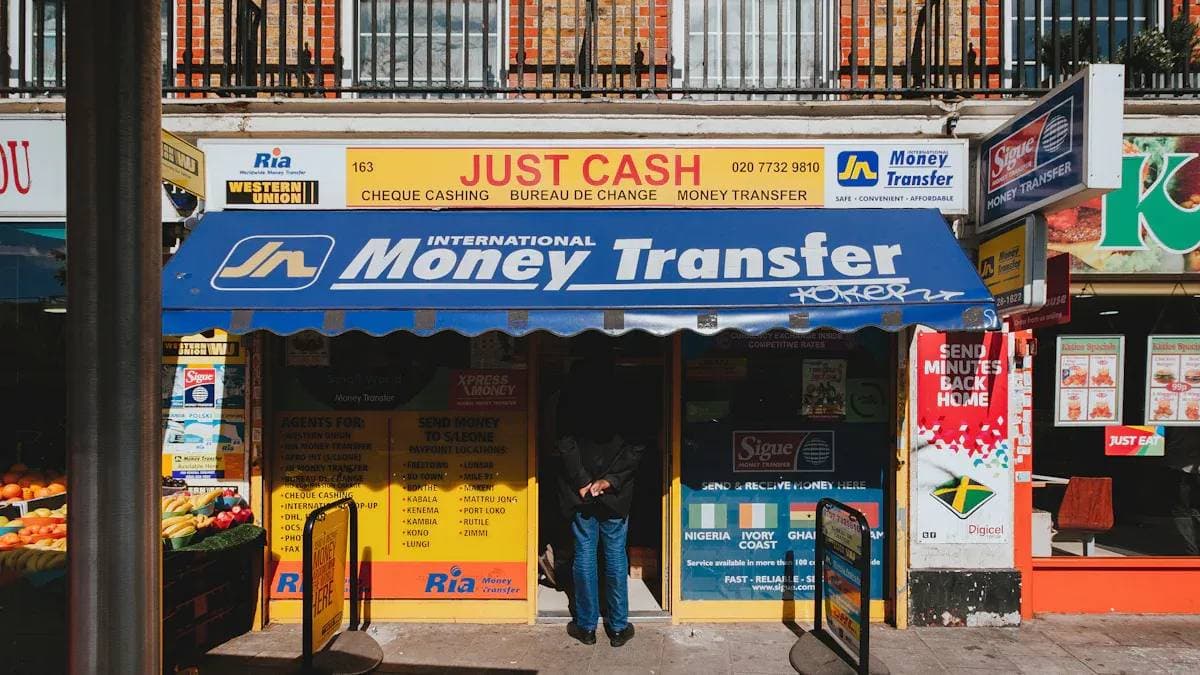- EasyCard
- Trade
- Help
- Announcement
- Academy
- SWIFT Code
- Iban Number
- Referral
- Customer Service
- Blog
- Creator
Is it reliable to find an intermediary to open an overseas bank account? How to open a free overseas bank account?
Against the backdrop of globalization, opening free overseas bank accounts has become a demand for many individuals and businesses for cross-border fund management and international investment. Faced with the banking systems and complex regulations of different countries, many people choose to open accounts through intermediaries to simplify the process. However, the high cost and latent risks of intermediaries cannot be ignored. This article will focus on whether opening overseas bank accounts through intermediaries is reliable and provide a detailed guide on how to open accounts online for free.

Open an overseas bank account through an intermediary
- Overview of intermediary services
Intermediaries help clients overcome language barriers and complex regulations by providing services such as account opening, legal advice, and document processing, simplifying the account opening process.
- Reliability of intermediaries
The reliability of intermediaries is the primary consideration for clients. Reliable intermediaries usually have a good industry background, hold relevant business licenses, and can provide transparent service processes and fee structures.
- Disadvantages of intermediaries
Opening an account through an intermediary is convenient, but it may involve high costs and privacy risks. Relying on intermediaries may also reduce customers’ control over the account opening process, leading to difficulties in future banking transactions.
- How to choose a reliable intermediary
The key to choosing a reliable intermediary is to verify its legality and service quality. Customers should check the official qualification certification and service terms of the intermediary, and seek independent customer evaluations. In addition, by consulting legal and financial experts, the professionalism and reputation of the intermediary can be more comprehensively evaluated.
Open your own overseas bank account
Based on the previous text, opening an overseas bank account through an intermediary not only requires payment of fees, but also has various drawbacks. Currently, many banks can open accounts online. We can open accounts for free ourselves, which not only saves costs but also ensures privacy and security. The following is a specific account opening introduction.
Choose the right free overseas bank account
Bank account type
Before opening an overseas bank account, the account type needs to be determined. Personal accounts are mainly used to handle daily financial activities and international fund transfers, suitable for individual users. Corporate accounts are designed specifically for cross-border transactions and business operations of companies, providing more customized services such as multi-currency management and support for large transactions.
The main free overseas banking options
- European banks such as N26 in Germany and LHV in Estonia offer free basic accounts, featuring no management fees and low-cost international transfers.
- North American banks , such as Tangerine in Canada and Chime in the US, offer no monthly fee accounts and free electronic money transfer services.
- Asian banks , such as Singapore’s DBS Bank, offer a variety of free or low-cost banking services to international customers. These banks usually offer multi-currency accounts and discounted international remittance fees, suitable for users who need to frequently conduct international transactions.
- Other international banks : Global banks such as Citi and HSBC feature a unified customer experience and free account opening services across multiple countries, suitable for users who often need to manage funds across borders.
Criteria for choosing a bank
- Fee structure : Understand all potential fees in detail and confirm whether the “no fee” account published by the bank is conditional.
- Client Server and Support : Choose a bank that provides 24/7 multilingual customer service and has good customer reviews to ensure that you can get timely help when you encounter problems.
- Account opening convenience and online management capabilities : Banks that support remote account opening and provide efficient online account management systems are preferred so that users can easily manage their finances.
- Banking services and products : Examine whether the bank provides the necessary financial services, such as cross-border money transfers, multi-currency account management, etc., to ensure that the specific needs of individuals or businesses are met.
Free Online Account Opening Process and Tips
Basic requirements and preparations
- Regulatory and compliance requirements : Research banking regulations and account opening compliance requirements in the target country to ensure all preparations comply with local laws.
- Required identity and financial documents : usually including a valid passport, proof of residence, occupation information, proof of source of funds, etc. Prepare these documents to meet the bank’s KYC (Know Your Customer) procedures.
Detailed account opening steps
- Visit the bank’s official website: find the account opening page and start the application process.
- Fill out the application form and submit documents : Fill out the application form accurately, detailing your personal and financial situation, and upload or mail all necessary documents as required.
- Account approval process : After submission, the bank will review the information provided, including credit evaluation and identity verification, a process that can take days to weeks.
How to maintain an account to avoid fees
- Minimum deposit requirement : Find out if the bank has a minimum account balance requirement and try to maintain that balance to avoid possible fees.
- Avoid additional fees : intelligently choose transaction types and frequencies, such as avoiding frequent small transactions and using non-cooperative bank ATMs, which often incur high fees.
- Use convenient remittance tools: For those who have cross-border remittance or investment needs, you can use BiyaPay , which can also meet the remittance needs, and integrate local transfer methods, digital currency exchange services are more convenient, bind overseas bank accounts to remit, low handling fees, no limit on the amount, same-day remittance, same-day arrival.
Conclusion
Overall, opening a free overseas bank account, whether through an intermediary or online, has its unique advantages and challenges. Although opening an account through an intermediary can simplify the process, it may involve higher costs and privacy and security issues. In contrast, opening an account online on your own may face document preparation and potential language barriers, but it saves costs and provides greater flexibility and cost-effectiveness.
*This article is provided for general information purposes and does not constitute legal, tax or other professional advice from BiyaPay or its subsidiaries and its affiliates, and it is not intended as a substitute for obtaining advice from a financial advisor or any other professional.
We make no representations, warranties or warranties, express or implied, as to the accuracy, completeness or timeliness of the contents of this publication.




Contact Us
Company and Team
BiyaPay Products
Customer Services
is a broker-dealer registered with the U.S. Securities and Exchange Commission (SEC) (No.: 802-127417), member of the Financial Industry Regulatory Authority (FINRA) (CRD: 325027), member of the Securities Investor Protection Corporation (SIPC), and regulated by FINRA and SEC.
registered with the US Financial Crimes Enforcement Network (FinCEN), as a Money Services Business (MSB), registration number: 31000218637349, and regulated by FinCEN.
registered as Financial Service Provider (FSP number: FSP1007221) in New Zealand, and is a member of the Financial Dispute Resolution Scheme, a New Zealand independent dispute resolution service provider.



















